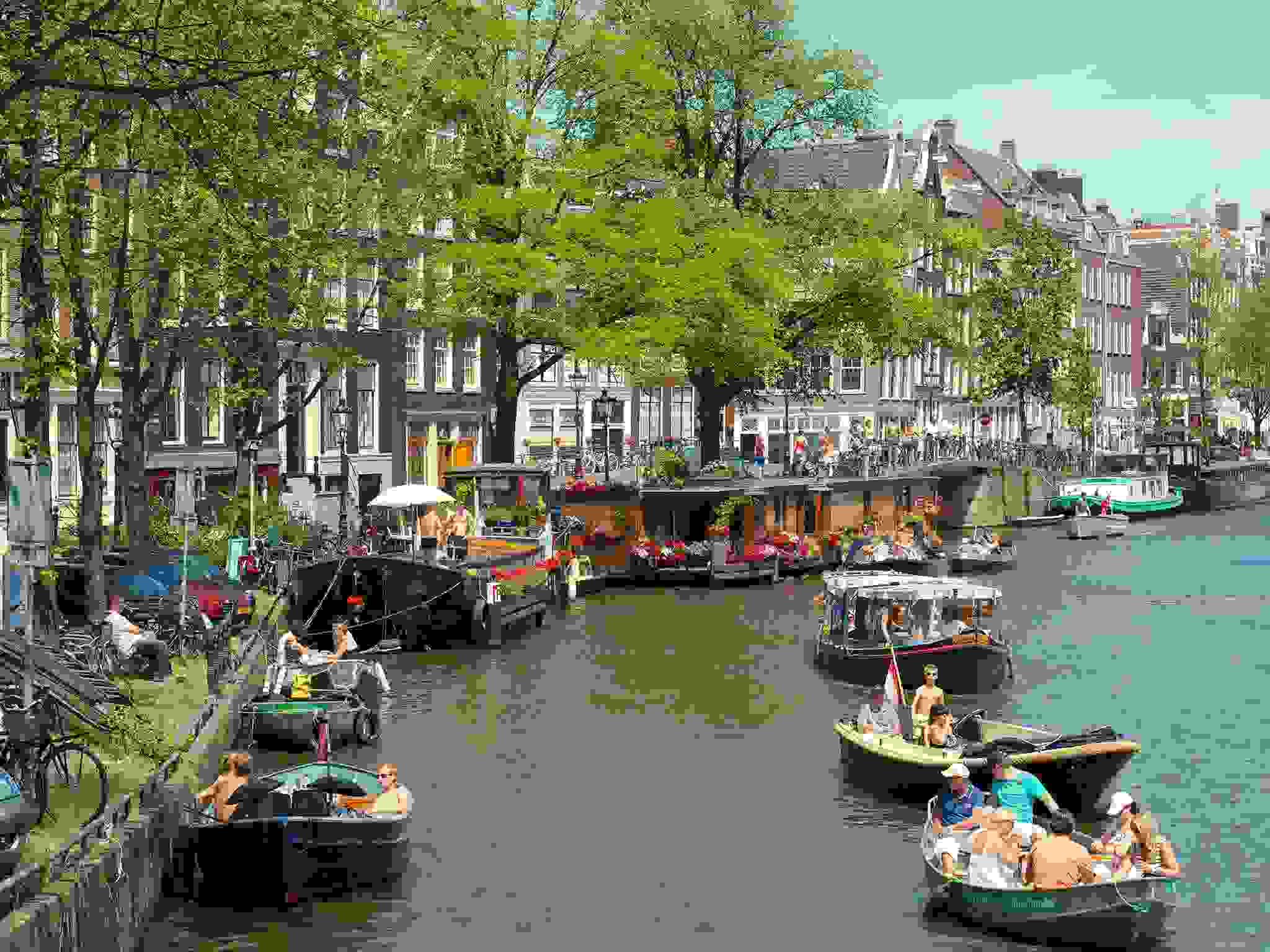Pursuing higher education in the UK increasingly feels like a one-way street to a debt advice charity - but it doesn’t have to be this way

With three years of undergraduate study setting you back by £45,000, and the cost of a master’s degree on the wrong side of £10,000, the financial future for UK graduates looks bleak.
But there is a solution, and it’s wafting from the coffee shops and across the tulip fields of the Netherlands. It’s also a solution UK students are being encouraged to take. In July, the president of Maastricht University urged British students to apply as soon as possible while they can still enjoy the low rate of tuition fees being offered to EU citizens.
As a British master’s student studying at Leiden University, I can attest to the joys of the Dutch university system - and here are just nine reasons why I encourage you to take Maastricht’s advice:
1. Fees
If you fear the inevitable repayment demand from the Student Loans Company, then the Netherlands is the place for you. The annual tuition fee for most undergraduate and graduate courses is only about £1,700, with the Dutch government providing loans to cover the entire amount. The interest rate is only 0.81 per cent - compared to the UK rate of up to three per cent - and you don’t make any repayments for the first two years after graduation.
2. Housing benefit
Unlike in the UK, students on a low income are entitled to Dutch housing benefit. And because you can only claim it if you have your own front door, bathroom, and kitchen, it can actually be cheaper to rent a studio than live in a flatshare.
3. Maintenance loan
Living in the Netherlands can be somewhat pricey, with a 15-minute train journey costing as much as £5, but the Dutch government offers maintenance loans of up to £880 a month. The catch is that, to claim it, you have to work more than 56 hours per month. But that’s not as difficult as it sounds, because…
4. English
According to the EU, 90 per cent of Dutch people speak English. Asking “do you speak English?” to a Dutch person is like asking “did you go to school?” Reflecting this linguistic proficiency, many undergraduate and most postgraduate courses are taught in English. And the Dutch students don’t seem to find this a problem. In fact, they’ll end up correcting your grammar.
5. Dutch efficiency
To say the Dutch are efficient is an understatement. When you register with a GP, you will be on the system within half an hour. When you register at the town hall, they will send a letter to your landlord because they know who your landlord is. And when I recently took a train to Amsterdam Airport, the driver apologised through the tannoy for arriving two minutes early.
6. Flexibility
The high premium put on student-teacher interactions means seminars have only around 15 students. Emphasis is placed on practical study, with Maastricht touting its ‘problem-based learning’ method, and courses everywhere involving presentations, role-play, group work, and often internships. The flexible system sometimes allows you to start a master’s in January, and even to take a semester out to go travelling.
7. International
With around 90,000 foreign students each year, Dutch universities have a truly international atmosphere. Most have societies and welcome weeks for foreign students, and Leiden even holds a lecture to help non-Dutch speakers grasp the language. Side note: the Dutch language is impossible, so don’t even bother trying.
8. Dutch-ness
Thankfully, the Netherlands does absolutely nothing to combat its national stereotypes. Within five minutes of arriving at Leiden, I saw a tall blonde man smoking weed, wearing orange, and cycling over a canal towards a windmill. Cheese shops line the high streets, and tulips blanket the ridiculously flat landscape.
9. Cheap flights
If all this Dutch eccentricity makes you homesick, it’s not a long journey back. The hop from Amsterdam to Gatwick takes just 40 minutes and costs around £25. There’s barely time to use the toilet before descending. In contrast, the train from London to Liverpool costs around £30 and takes two-and-a-half hours. Though that’s plenty of time to use the toilet.
If all this talk of efficiency, low fees, and housing benefit has got you dreaming of windmills, then start by checking out Amsterdam, Erasmus, Groningen, Leiden, and Maastricht universities. The application process is about to open, and many universities will have open days coming up pretty soon.
With Brexit looming, and the rights of British overseas students uncertain, make the most of this wonderful opportunity before it’s too late.
